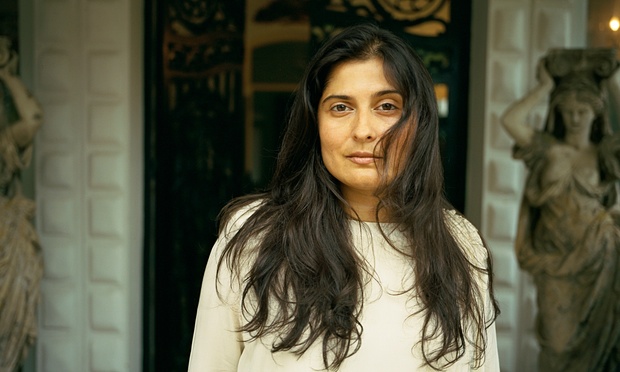“How is this going down in your home country? You keep poking your lens where it’s least welcome,” CNN Chief International Correspondent Christiane Amanpour asks filmmaker Sharmeen Obaid-Chinoy during an interview on her hit tv show “Amanpour”.
“I think it’s very important to have these difficult conversations.
We aren’t going to make the country a better place if we keep glorifying the good things about it. We must talk about issues that confront Pakistan ─ and there are many issues that confront the country,” Chinoy replies.
The filmmaker, who won an Oscar in 2012 for her documentary “Saving Face” highlighting the plight of acid attack survivors, is in the running for another golden statuette this year. The documentary on honour killing, “A Girl in the River: The Price of Forgiveness”, is one of five films to be nominated for an Oscar in the ‘Best Documentary ─ Short’ category at the 88th Academy Awards this year.
Chinoy’s critics have, in the past, taken issue with her highlighting what they call the ‘negative side’ of Pakistan. But she thinks “It’s very important to have these difficult conversations… It’s very important to shake the status quo.”
“The most hopeful thing about this film is that it started a national discourse in Pakistan about honour killings ─ something we desperately needed to have,” she says.
Prime Minister Nawaz Sharif, Chinoy tells Amanpour, announced that his government “will introduce legislation as early as next week, talking about how honour killings need to be stopped, that there is no place for them in society”.
“He has said there is no place for honour killings in Islam… For a prime minister of Pakistan of Pakistan to make such statements sends a very positive signal. It doesn’t mean honour killings will end tomorrow but it does mean that the leadership is taking this very seriously and they will have laws that will counter it,” she says.
‘Nothing wrong with killing women’
But, Amanpour asks, even if PM Nawaz stands up for law and order and basic women’s rights, what about what happens in villages and homes? “It’s families taking the law into their own hands.”
Chinoy agrees. “Right now, as the law stands, when a father kills his daughter or a brother kills his sister, the family can forgive. The wife can forgive her husband, the parents can forgive their son, so very few people go to jail for honour killings in Pakistan.”
What that means, she says, is that in entire villages, towns and cities, people know of others who have killed women in their family and are walking free ─ Which gives the impression “that there is nothing wrong with killing women”, she says.
She stresses the need for a law that acts as a deterrent to the practice of honour killings. “We need to start sending people to jail, we need to start making examples of them,” she says. “If people don’t go to jail for it, how will they start thinking it is a serious crime?”
Saba’s story
“One day, I was reading a newspaper story about a girl who had been shot and thrown in a river in a gunny sack and survived in what appeared to be an attempted honour killing. I called up the hospital and arrived there… And right from the beginning, the girl was determined to fight. She was determined for her story to be told, because she said she didn’t want any other woman in Pakistan to go through what she went through.”
However, the existence of the law of forgiveness and pressure from the community has forced Saba to forgive her attackers.
“Her father is free from jail. [Due to] the loophole that exists in the law in Pakistan, the community forced Saba to forgive her father and uncle. They are walking free, but have given a guarantee that they will not harm her again. But she is lucky, because in many cases when the culprits walk free, they do come back and kill,” Chinoy says.
Saba, whose father and uncle tried to kill her for marrying a man of her choice from a lower social class, did end up staying with her husband, but is still living near her parents.
“She did, indeed, get married to him. She’s had a son with him. She’s living with her in-laws right now in a home not far from where her parents live.”
Chinoy says Saba wants to raise her son to be someone who respects women.
“She said, “If the prime minister changes the law, I’m going to go to Islamabad to his office and thank him in person”.”
Read : Sharmeen Obaid-Chinoy’s Oscar nominated documentary to premiere at PM House






